What Is Sleep Apnea? Cumming
The Details Behind Your Inability to Sleep
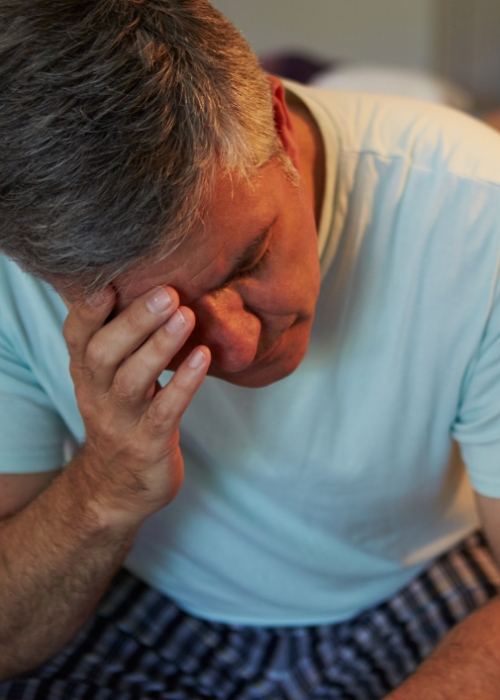
If you are someone who learns that you have sleep apnea, consider yourself lucky. While this might seem like an odd statement, the reality is that the majority of individuals who suffer from sleep apnea don’t even know they have it, so they continue to go undiagnosed and are unable to get the care they need. With sleep apnea comes chronic fatigue, loud snoring, irritability, lack of focus, and even more serious health-related conditions such as diabetes, stroke, and heart attack. Our team at Sleep Forsyth wants to reduce your risk, which is why Dr. Bragg is here to provide a more thorough explanation of sleep apnea in Cumming and what it really is.
Why Choose Sleep Forsyth for Sleep Apnea Treatment?
- Dr. Bragg is a Diplomate of the American Board of Dental Sleep Medicine
- We Are Credentialed to File Medical Insurance Claims
- Streamlined Process for Greater Convenience & Ease
The Basics of Sleep Apnea
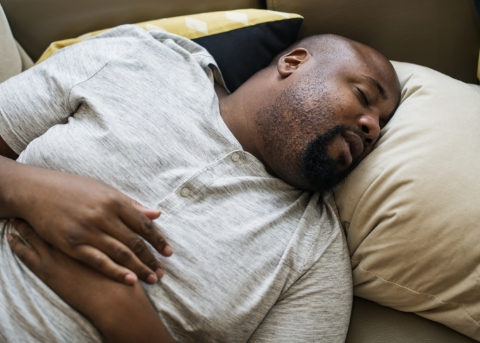
Sleep apnea is a serious condition that makes it difficult for a person to achieve a full night of uninterrupted sleep. It occurs when their breathing stops for 10 or more seconds at a time. This can happen once or more than one hundred times each night. When ceased breathing occurs, the body is jolted awake, oftentimes with the individual gasping or choking on air.
This continuous problem, which is commonly known as Obstructive Sleep Apnea (OSA), leads to serious symptoms over time, making it nearly impossible for a person to experience a good quality of life because of chronic fatigue. When the body and brain cannot complete a full sleep cycle each night, its repercussions extend to the following day. The rollercoaster many people experience as a result of sleep apnea can have devastating consequences on their cardiovascular system and more.
Learn More About Obstructive Sleep Apnea
Learn More About Central Sleep Apnea
What Causes Sleep Apnea?
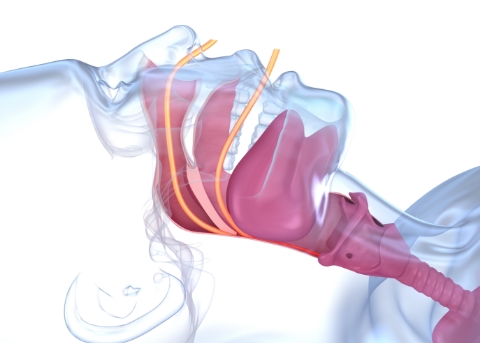
Sleep apnea can develop for many different reasons; however, there are two common types that individuals must be aware of: obstructive sleep apnea (OSA) and central sleep apnea (CSA). OSA often deals with narrow or blocked airways, while CSA is often the cause of a neurological problem that makes it difficult for the body to breathe. No matter the type a person is suffering from, their sleep position, weight, lifestyle habits, and family history can play a role in whether they will develop sleep apnea.
Common Sleep Apnea Symptoms
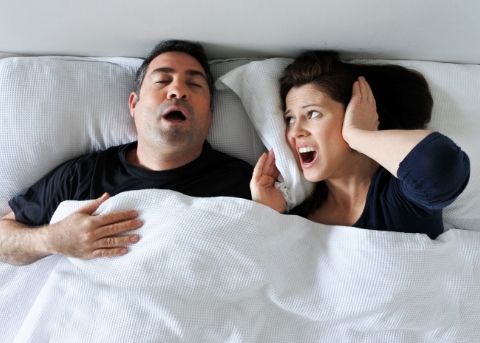
Not all sleep apnea symptoms are readily identifiable, especially since many can be attributed to other potential problems. However, if you or your partner notice that one or more of the following are becoming a regular part of your daily life, consider calling our office for help:
- Loud/chronic snoring
- Silent pauses in breathing
- Choking or gasping
- Waking in the morning feeling unrefreshed
- Problems with memory and/or concentration
- Being tired during the day
- Morning headaches
- Dry mouth or sore throat/hoarseness in the morning
- Behavior/mood swings
- Waking up frequently at night to go to the bathroom
- Difficulty concentrating or remembering things
- Clenching or grinding at night
- Impotence
Learn More About Symptoms of Sleep Apnea
The Dangers of Sleep Apnea
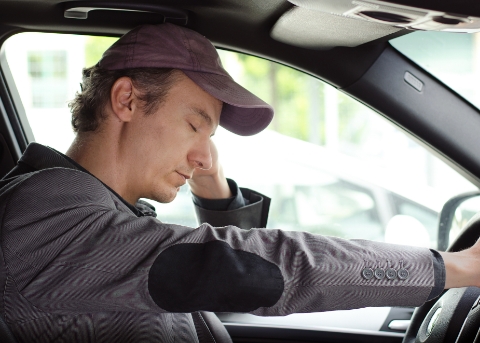
If you want to enjoy a healthier life, quality sleep is essential. It can help or hinder your physical, mental, emotional, and behavioral health. Without proper treatment for sleep apnea, you run the risk of developing one or more of the following issues:
- Heart disease
- Stroke
- High blood pressure
- Diabetes
- Obesity
- Dementia/Alzheimer’s
- Cancer
- Depression
- Sexual dysfunction
The longer these symptoms last without proper treatment, you may find that you spend thousands of dollars at the doctor’s office on ineffective solutions. Also, there is a greater chance of premature death.
How Is Sleep Apnea Diagnosed?
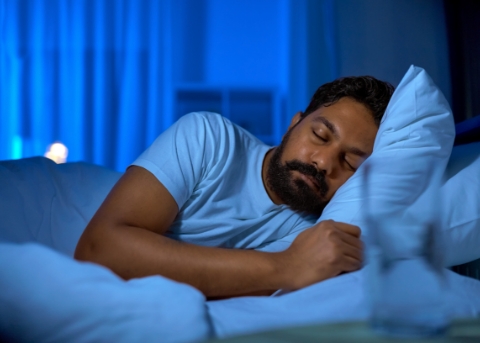
A sleep study with a sleep clinic (also called a polysomnogram) is the only definitive way to tell whether or not you suffer from sleep apnea, and how severe that apnea might be. Sleep studies can be conducted in a sleep laboratory or at home using a sleep study device such as the Nightowl or WatchPat. In either case, the tests are completely painless, and they may have you complete two nights.
Learn More About Sleep Testing Learn More About Diagnosing Sleep Apnea
How Is Sleep Apnea Treated?
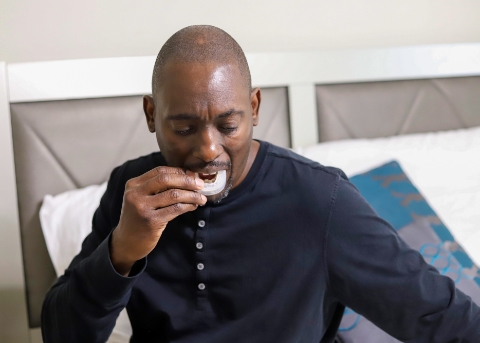
There are several ways for sleep apnea to be treated, one of the most common being CPAP (continuous positive airway treatment) therapy. Pushing air through a mask that is worn over the nose and/or mouth works to keep the airway open. Custom oral appliances are designed to be comfortable, portable, and easy to use. Countless patients are achieving better sleep with these simple yet effective oral devices! There are also surgical options that might be recommended.
Learn More About Oral Appliances
Benefits of Sleep Apnea Treatment

Sleep apnea may happen while you’re sleeping, but the benefits of treatment last all day. With treatment, you’ll find that you have more energy. You will be less likely to fall asleep during the day at work, in the car, or in front of the TV. Your health will improve. You will find that you are more likely to exercise. Your lung capacity may improve. You’ll find you’re less tempted by junk food, and you’ll find it’s easier to lose weight. You’ll also find you’re less irritable and better able to enjoy life.
And when it is time to go to sleep, you’ll love going to bed with your partner. Both of you will be able to sleep through the night with no elbows thrown!
Understanding the Cost of Sleep Apnea Treatment

You will first need to visit our team for an initial consultation to discuss both your sleep apnea treatment as well as the details of the cost. Various factors can influence how much you will end up having to pay, and we want to ensure that you feel comfortable and confident about what to expect before moving forward. We can also assist in filing insurance claims on your behalf as well as walk you through alternative financing options to help you work within your budget.
Does Dental Insurance Cover the Cost of Sleep Apnea Treatment?
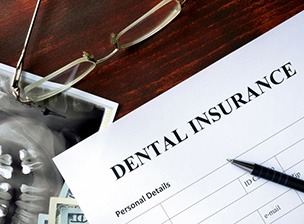
Although sleep apnea does involve a person’s airways and breathing, it isn’t directly related to oral health. This means that many dental insurance companies might not offer coverage for the cost of sleep apnea treatment. That said, you should still consult our team if you have medical insurance, as many policies can cover part of your care. In fact, we are in-network with BlueCross BlueShield and would be happy to help you navigate the specifics of your plan.
Factors That Affect the Cost of Sleep Apnea Treatment
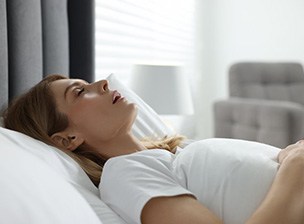
A couple of the common things that can influence the price of your sleep apnea treatment include:
- Insurance policy: With medical insurance, you can typically expect your coverage plan to help with most kinds of sleep apnea services. Of course, your specific out-of-pocket expenses will be determined by several factors, such as your copay, coinsurance, and deductible.
- The kind of treatment you receive: You can typically expect oral appliance therapy and CPAP machines to come with different prices.
Treat Your Sleep Apnea Now to Improve Your Health

While sleep apnea treatment can appear costly at first, you’ll want to consider the kind of investment you’ll be making in your future expenses as well as your overall health. This sleeping disorder, if left unchecked, can lead to various other complications, including heart disease, diabetes, excessive weight gain, and depression. This means that by treating the underlying issue now, you can potentially save more in the long run. Additionally, improving your ability to sleep can provide you with amazing benefits to your everyday life, such as boosting your mood to start your day off right.
Making Sleep Apnea Treatment More Affordable

Our team understands the importance of being able to rest well to improve your daily performance and overall well-being. The last thing we want is for you to not get the treatment you need because of the cost. That’s why our team is partnering with CareCredit—a third-party financier that can help turn the price of your care into monthly installments, typically with little to no interest involved! This way, you can save more while still getting the treatment you need to sleep better.
Sleep Apnea FAQs
Does Everyone Who Snores Have Sleep Apnea?
Everyone snores occasionally, like when dealing with nasal congestion from a cold or allergies. Snoring does not always indicate sleep apnea, but the two often go hand-in-hand. 20 million Americans have sleep apnea. Loud, chronic snoring is often a sign of the breathing disorder. Snoring is caused by air vibrations passing over the soft tissues in the back of the mouth and throat. Obstructive sleep apnea is caused by the soft tissues in the back of the mouth or the tongue collapsing to create an obstruction in the upper airway, which is why snoring is often a symptom of the condition. Only a sleep specialist can determine if your snoring is caused by sleep apnea.
Will My Sleep Apnea Go Away If I Lose Weight?
Obesity is a contributor to obstructive sleep apnea. About 70% of patients with obstructive sleep apnea are obese. In addition, 45% of obese people have sleep apnea. Researchers have found a 10% weight gain can increase your risk of sleep apnea up to 6 times. A 2022 study found that losing just 5% of weight can improve sleep apnea symptoms. Exercising regularly can help you lose weight and also promote better sleep. A brisk 30-minute walk a few times a week can help you shed unwanted pounds and reduce sleep apnea symptoms.
Can I Use an Oral Appliance If I Grind My Teeth?
If you suffer from bruxism, you can still be a candidate for oral appliance therapy. 33-54% of people with obstructive sleep apnea also grind their teeth while sleeping. Your oral appliance can prevent breathing disruptions while also protecting your teeth from the friction of grinding and clenching. You will sleep better while reducing your risk of costly dental work later to repair the damage caused by bruxism. It can even help alleviate jaw pain caused by teeth clenching. However, you may require more frequent replacements because your oral appliance will experience more wear and tear.
How Soon After Starting Sleep Apnea Treatment Will I Notice Improvement?
Patients using a CPAP to manage sleep apnea may notice some improvement in their sleep quality after the first day of using the machine. It can take many months to achieve the full benefits of CPAP treatment because you must get used to wearing facial masking and adjusting to the air pressure. An oral appliance can provide quicker relief. In fact, many patients report a remarkable improvement in their symptoms on the first night of using the device. When used for mild-to-moderate obstructive sleep apnea, patients can experience over a 95% improvement in symptoms when used nightly.
Snoring Sleep Testing Oral Appliance Therapy (OAT) View Our Services

